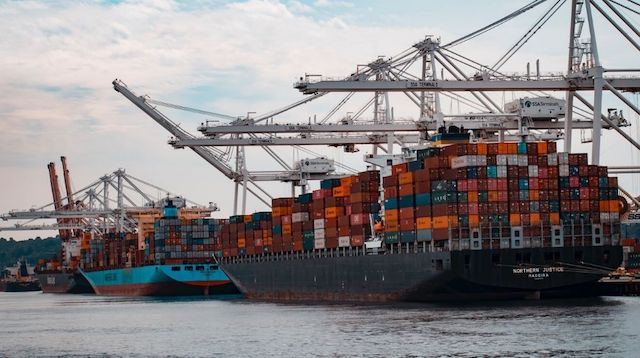The World Health Organization (WHO) has declared coronavirus (COVOID-19) a pandemic, a concern for small businesses across the country as they employ more than 40% of India’s total workforce. Therefore, these businesses have a responsibility to safeguard their employees and community from any danger during the global crisis, while at the same time keeping their business running.
53% of Indian small businesses surveyed by healthcare company GOQii say there has already been an impact on their businesses due to the coronavirus.
On March 16, a high-level meeting under the chairmanship of Dr Harsh Vardhan, Minister for Health and Family Welfare, issued an advisory directing states to take social distancing measures as a preventive strategy at least until March 31.
This obviously directly affects small businesses, as they bring workers, suppliers and customers together every single day.
Below we’ve listed some situations you should plan for now. By preparing an umbrella before the rain, you can help your business weather the storm.
Prepare now for these 6 coronavirus effects
Small businesses should prepare for these six effects, as the number of people infected with coronavirus (COVOID-19) increases across the country:
- Absent workers.
- Supply-side disruption.
- Demand-side disruption.
- Regulations on large gatherings.
- Travel guidelines.
- A financial impact.
Once you’ve scanned our six small business impacts, keep reading for a preliminary list of initiatives by the government to help business owners survive this difficult time.
How the global crisis could affect your business
As the number of confirmed coronavirus cases ticks up, small businesses across India are beginning to see the following impacts.
1. Absent workers
Businesses may witness the absence of staff in the near future and must have a B-plan aligned with the current business goals or continuity plans.
The government is urging employers to ensure the workplace is hygienic and has sufficient supplies of masks and sanitizers. Any employee with a flu-like symptom or pregnant female employees should be allowed to work from home.
Employees may also want to work from home for safety reasons.

Since governments in many states like Delhi, Odisha, and Haryana have released orders to close schools, cinema halls, swimming pools, and gyms, they may have to take care of kids at home also.
In the adverse case, if the government imposes a lock-down or regulates commutation and gatherings, you might have no choice but to send workers home.
Businesses sending employees to work at home
Here are a few examples of businesses that have already sent employees to work at home:
- Flipkart has made it mandatory for its Bengaluru-based employees to work from home thrice a week.
- India’s largest bourse NSE announced that as a temporary measure, member stock brokers will be permitted to work from home.
- Two weeks ago, Delhi-based software testing startup Wingify sent its 250 employees home to work.
- The 8,000 employees who work for Chennai-based online office suite provider Zoho, are now all working from home.
If your business is able to do the same, you can use this list of free apps and tools to keep your teams productive.
2. Supply-side disruption
Many businesses like auto, electronics, textiles, agrichemical and pharmaceutical companies have their supplies from China. The supply chain interruption caused by the coronavirus is already impacting the manufacturing process of industries in India.
For example, New Delhi-based Deki Electronics is turning to South Korean suppliers to meet the demand for materials not coming from China.
Others see the answer as being closer to home. “The industry will have to look for domestic alternatives,” suggests A K Bhattacharya, Editorial Director of the Business Standard. “Coronavirus has forced companies, economies, governments across the world to start thinking locally, because there are obvious downsides to a global supply chain-led economic growth.
“The countries will start thinking whether there should be greater emphasis on local procurement of raw materials, local resources and local employees instead of relying on the economies of scale that earlier companies used to derive by global supply chain advantages.”
3. Demand-side disruption

Lately, there has been a sharp surge in the demand for grocery, and personal hygiene items, as consumers have started hoarding necessary products.
With authorities in major metros urging people to stay at home, shutting down malls and restaurants to slow the spread of the virus, online grocery services are benefitting in a big way.
Indians in metro areas are stocking up staples like flour, rice and pulses besides disinfectants, hand sanitisers, diapers, and personal care items.
Online grocery startups like Grofers and Big Basket’s saw sales shoot up by 80 to 100% in one weekend. As a result, Bigbasket CEO Hari Menon has had to radically increase storage space, delivery fleet and personnel.
Meanwhile, apparel and other retail stores are doing all they can to lure customers by offering deep discounts.
4. Regulations on large gatherings
Section 144 prohibits public gatherings and has been imposed on groups of various sizes in Delhi, Pune, Noida, Maharashtra and elsewhere. Rajasthan has banned public gatherings of 50 or more through the end of March 2020.
The government advisory issued on March 16 recommended closing all:
- Schools and colleges
- Cinemas and museums
- Cultural and social centres
- Pools
- Nightclubs
- Spas and gyms
- Weekly markets
- Social, religious and political gatherings

The advisory also urged businesses and organizations to follow these rules:
- Meetings, as far as feasible, shall be done through video conferences.
- Restaurants to ensure hand washing protocol and proper cleanliness of frequently touched surfaces. Ensure a minimum one metre physical distance between tables, with open air seating where practical.
- All commercial activities must keep a distance of one meter between customers; steps must be taken to reduce peak hour crowding in markets.
- Shaking hands and hugging as a matter of greeting is to be avoided.
While these measures may seem extreme, it is the only way to slow the spread of the coronavirus. By slowing the spread — sometimes called “flattening the curve” — we can lessen the impact on hospitals and other health care providers, keeping them from becoming overwhelmed.
5. Travel guidelines
Starting from March 13 2020, all existing visas (including tourist visas) stand suspended until April 15 2020. The only exceptions currently are:
- Diplomatic
- Official
- UN/International Organizations
- Employment
- Project visas
More recently, the government banned the landing of all international commercial passenger flights from March 22 to 29. The Civil Aviation Ministry and Railways have been asked to suspend all concessional travel on flights and trains, except for students, patients and disabled people.
More such regulation may come up in the near future.
6. A financial impact
Let’s start with some positive news. The Reserve Bank of India (RBI) has introduced measures to pump more rupee liquidity into the banking system.
RBI will inject liquidity of Rs 30,000 crore to maintain financial stability in the system.
To keep its IT infrastructure secure and running without interruption, 150 RBI employees have been relocated to an unknown place in a completely quarantined environment. These staff members are now in charge of the business continuity plan of the central bank.
What this means for business is:
- The banking system will continue running as normal
- Business and retail payments will continue to be processed
- Continuance of government tax and other payments
“The idea is that all critical functions of the financial system continue to be available to individuals, businesses and governments, under all circumstances.”
Now for the less good news
Despite the very welcome promise by India Inc. not to cut jobs or reduce salaries, not all Indian workers have been so lucky.
- On March 17, thousands of employees of budget carrier GoAir were asked to take forced leave without pay.
- The Federation of Associations in Indian Tourism & Hospitality (FAITH) predicts that around 70% of the hospitality workforce could become unemployed.
- With the entire country ordered to practice social distancing, businesses of all sizes are seeing a drop in footfall.
Many have responded by adding online ordering and/or delivery services to offset the drop.
While these signs are worrisome, we must not be discouraged. Once the spread of the virus is stopped, India can begin to recover what’s been lost.

Initiatives by the government to help business owners
While the government is yet to officially announce the fiscal and monetary measures it will use to combat the financial effects of the global crisis, it has issued several useful directives:
Exporting/importing goods
To handle any issues pertaining to the trade and speedy clearance of export/import of goods, the Government of India has appointed nodal officers in various ministries and Government departments. For any such help, you can fill out the form and request assistance here.
Financial support
The Department of Financial Services (DFS) has issued a notice to all the Public Sector Banks (PSBs) to provide full assistance to the micro, small and medium enterprises (MSMEs) affected by the novel coronavirus.
This notice instructs PSBs to immediately:
- Set up cells to provide assistance required to industry segments and MSME units and to process requests quickly
- Clearly inform customers about all documents/procedural requirements in one go and to accept self-certification wherever possible
- Identify opportunities for import substitution/ramping up of production
While the country waits for the recommendations of Prime Minister Modi’s Economic Response Task Force, Kerala has announced a package of loans, free ration, social security and employment programs. Uttar Pradesh is reportedly working on cash transfers.
Related: Where to find SMB business loans
Insurance coverage
Insurance Regulatory and Development Authority of India (IRDAI) has been requested to ensure that any risk due to abnormal delay in shipment caused by the pandemic must be covered under insurance policies and products.
The private sector is also pitching in. For example, Mumbai-based startup, Digit insurance has launched a fixed-rate insurance policy for coronavirus related cases.
Other helpful resources for employers
In response to the global crisis, the Government of India has created printable posters to share with workers, suppliers and customers — both digitally and in your shops, offices and warehouses:
It is imperative that business owners do not rely on scattered news and any information on the internet.
Employers are leaders and the guiding light.
Here is a list of dependable resources to keep yourself and your employees updated:
- Official Indian Government health tips, guidelines and up-to-date travel advisories. Find a list of testing laboratories here.
- The World Health Organization (WHO) updates are here.
- The Bing Team has created a COVID-19 tracker; employers can get the official global stats on the spread of the coronavirus here.
It is the responsibility of the employers to make sure employees don’t panic and should be counseled for medical tests if anyone shows the symptoms. Any travel plan, even domestic should be avoided.
Last few words
In view of the rising number of coronavirus cases in India, it is imperative for businesses to take measures to keep their employees healthy and businesses operating — even if it means changing your business model.
This post has outlined the business impacts to expect from the coronavirus.
We have discussed all the possible fronts at which employers need to prepare an umbrella before the rain. The Government of India is planning measures to help traders and industries that are being impacted by this global crisis. Apart from the Government, others are coming forward to share the responsibility and create some helpful resources that everyone can use.
Taking all the necessary precautions at the workplace to maintain the safety of employees is your biggest responsibility. However, you should know that you are not alone.
While you cannot take comfort from the physical presence of your peers, you can turn to forums and Facebook groups for inspiration and guidance in this time of great challenge. Stay well.
Information was accurate as of the time of publication. Consult the government website for up-to-the-minute changes.
GoDaddy Editor Cate Barker contributed to this post.








